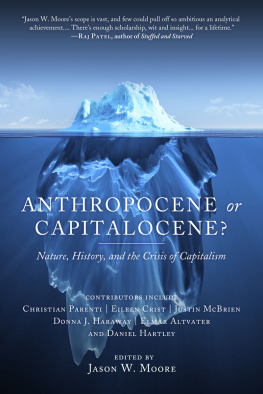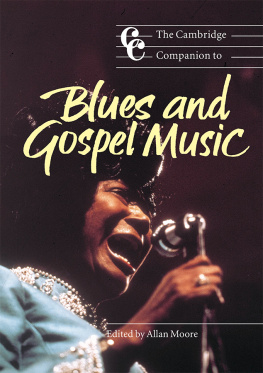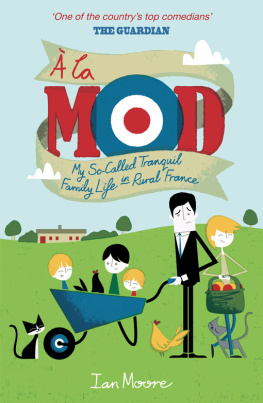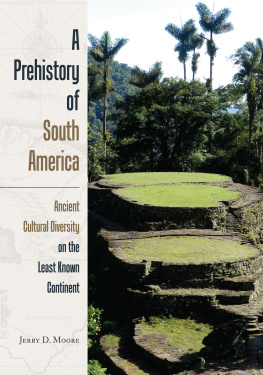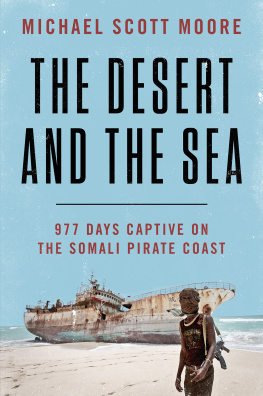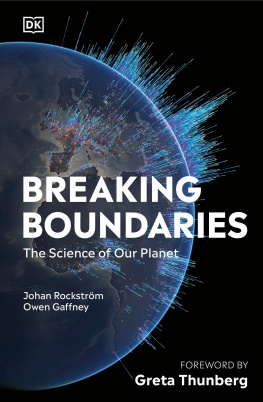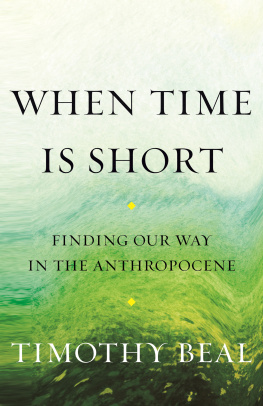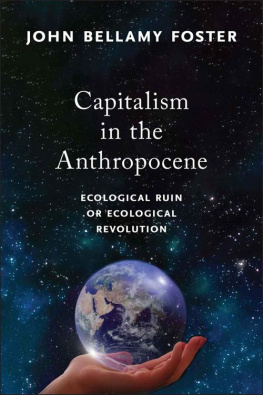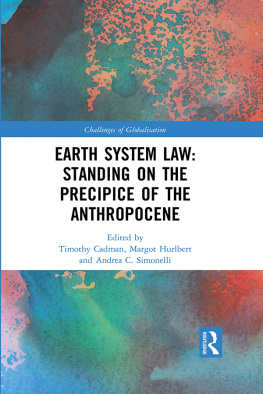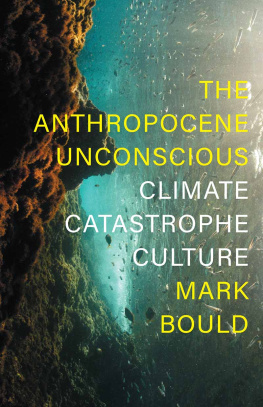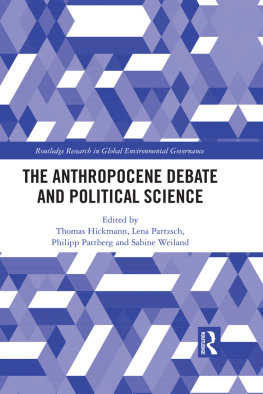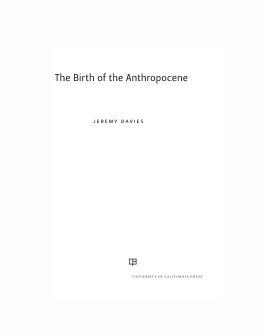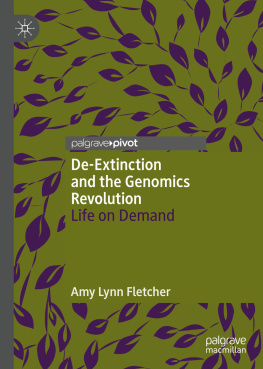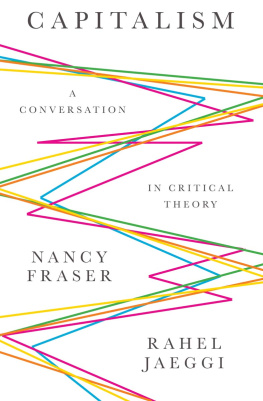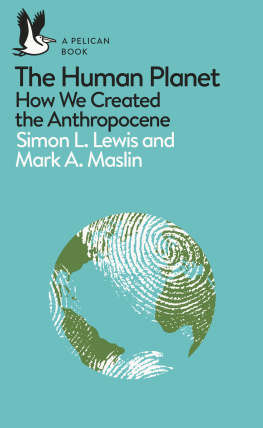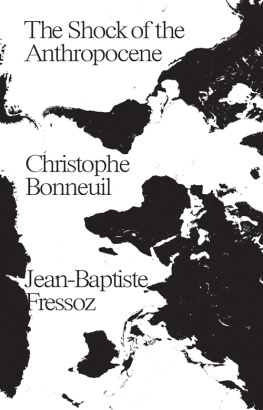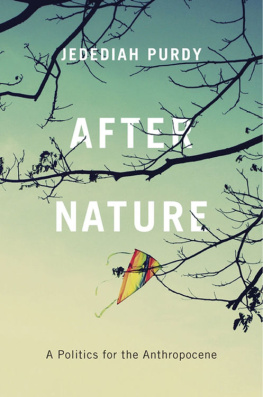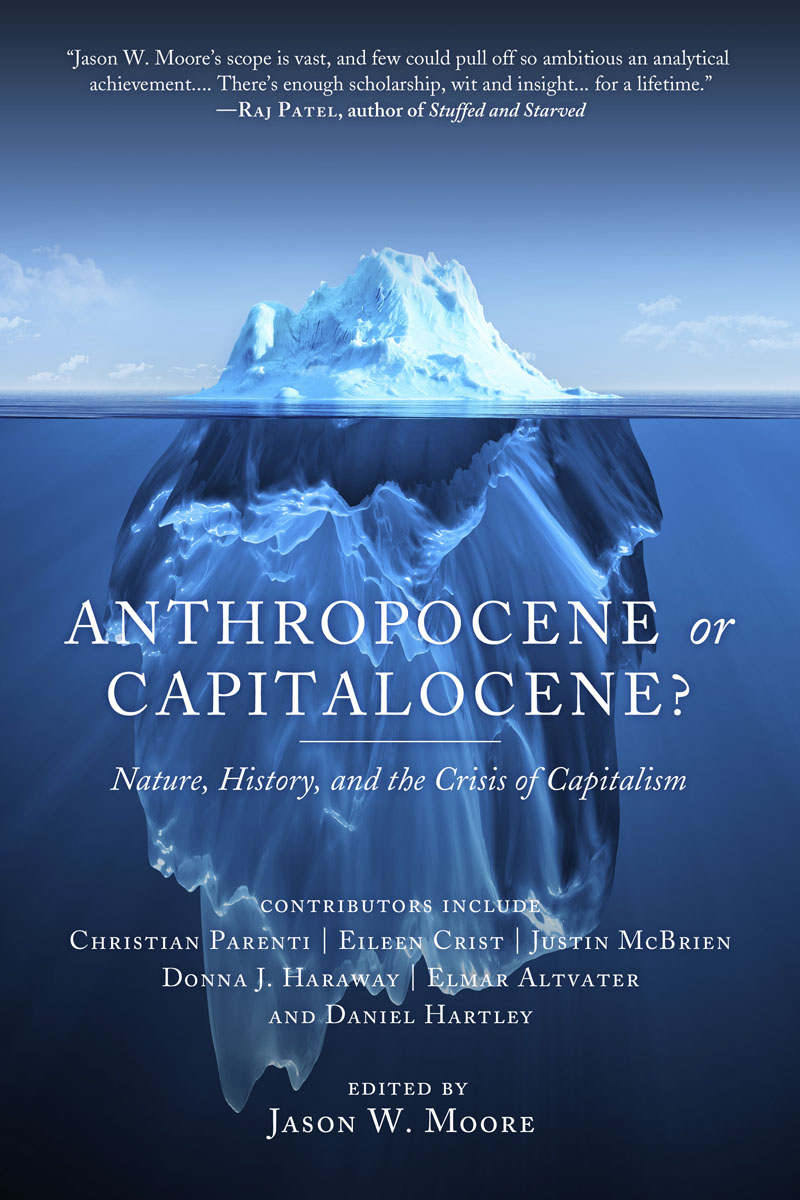
A revolutionary new phase of earth history, the Anthropocene, has been unleashed by human action, and the prospects for this blue sphere and the mass of humanity are not good. We had best start thinking in revolutionary terms about the forces turning the world upside down if we are to put brakes on the madness. A good place to begin is this book, whose remarkable authors bring together history and theory, politics and ecology, economy and culture, to force a deep look at the origins of global transformation. In short, the enemy to be met is not us, dear Pogo, but capitalism, whose unrelenting exploitation of (wo)man and nature is driving us all to the end(s) of the earth.
Richard Walker, professor emeritus of geography, University of California, Berkeley, and author of The Capitalist Imperative, The New Social Economy, The Conquest of Bread, and The Country in the City
This volume puts the inadequate term Anthropocene in its place and suggests a much more appropriate alternative. We live in the age of capital, the Capitalocene, the contributors argue, and the urgent, frightening and hopeful consequences of this reality check become apparent in chapters that forces the reader to think. In a time when there is generally no time or space to think (meaning: to go beyond the thoughtlessness that is the hallmark of business as usual) we need a book like this more than ever. Confronting and thinking the Capitalocene we must. This book is a great place to start.
Bram Bscher, professor of sociology, Wageningen University, and author of Transforming the Frontier: Peace Parks and the Politics of Neoliberal Conservation in Southern Africa.
For more than a decade, earth system scientists have espoused the idea of a new geological age, the Anthropocene, as a means of understand the system environmental changes to our planet in recent decades. Yet we cannot tackle the problem of climate change without a full account of its historical roots. In this pioneering volume, leading critics call for a different conceptual framework, which places global change in a new, ecologically oriented history of capitalismthe Capitalocene. No scholar or activist interested in the debate about the Anthropocene will want to miss this volume.
Fredrik Albritton Jonsson, associate professor of history, University of Chicago, and author of Enlightenments Frontier: The Scottish Highlands and the Origins of Environmentalism
Attempts to build political alliances around the project of rebalancing relations between society and nature have always stumbled when they encounter the thousands of communities and groups that would prefer not to have much truck with this dualism at all. The idea that global warming is a matter of the advent of an anthropocene era is getting to be a particular obstacle to effective climate actionone that this book provides brilliant new intellectual tools for overcoming.
Larry Lohmann, The Corner House


In ancient Greek philosophy, kairos signifies the right time or the moment of transition. We believe that we live in such a transitional period. The most important task of social science in time of transformation is to transform itself into a force of liberation. Kairos, an editorial imprint of the Anthropology and Social Change department housed in the California Institute of Integral Studies, publishes groundbreaking works in critical social sciences, including anthropology, sociology, geography, theory of education, political ecology, political theory, and history.
Series editor: Andrej Grubai
Kairos books:
In, Against, and Beyond Capitalism: The San Francisco Lectures by John Holloway
Anthropocene or Capitalocene? Nature, History, and the Crisis of Capitalism edited by Jason W. Moore
Birth Work as Care Work: Stories from Activist Birth Communities by Alana Apfel
Wrapped in the Flag of Israel: Mizrahi Single Mothers, Israeli Ultranationalism, and Bureaucratic Torture by Smadar Lavie
We Are the Crisis of Capital: A John Holloway Reader by John Holloway
Anthropocene or Capitalocene? Nature, History, and the Crisis of Capitalism
Edited by Jason W. Moore
2016 PM Press.
All rights reserved. No part of this book may be transmitted by any means without permission in writing from the publisher.
ISBN: 9781629631486
Library of Congress Control Number: 2016930960
Cover by John Yates / www.stealworks.com
Interior design by briandesign
10 9 8 7 6 5 4 3 2 1
PM Press
PO Box 23912
Oakland, CA 94623
www.pmpress.org
Printed in the USA by the Employee Owners of Thomson-Shore in Dexter, Michigan. www.thomsonshore.com
For my father,
Who taught me that it is the conversation that counts
Contents
PART I
THE ANTHROPOCENE AND ITS DISCONTENTS: TOWARD CHTHULUCENE? |
PART II
HISTORIES OF THE CAPITALOCENE |
PART III
CULTURES, STATES, AND ENVIRONMENT-MAKING |
Acknowledgments
It was a spring day in southern Sweden in 2009. I was talking with Andreas Malm, then a PhD student at Lund University. Forget the Anthropocene, he said. We should call it the Capitalocene!
At the time, I didnt pay much attention to it. Yes, of course, I thought. But I didnt have a sense of what the Capitalocene might mean, beyond a reasonablebut not particularly interestingclaim that capitalism is the pivot of todays biospheric crisis.
This was also a time when I began to rethink much of environmental studies conventional wisdom. This conventional wisdom had become atmospheric. It said, in effect, that the job of environmental studies scholars is to study the environment, and therefore to study the environmental context, conditions, and consequences of social relations. The social relations themselvesnot least, but not only, those of political economywere generally outside the fields core concerns. That didnt seem right to me. Werent all those social relations already bundled within the web of life? Were not world trade, imperialism, class structure, gender relations, racial ordersand much morenot just producers of environmental changes but also products of the web of life? At some high level of abstraction, that argument was widely accepted. But at a practical, analytical level, such ideas were exceedingly marginal.
That has now changed. The idea of the Capitalocene as a multispecies assemblage, a world-ecology of capital, power, and nature, is part of the global conversationfor scholars, but also for a growing layer of activists.
This book is one product of the conversations that germinated in Sweden, beginning that spring of 2009. Those conversations would eventually give rise to the world-ecology perspective, in which the relations of capital, power, and nature form an evolving, uneven, and patterned whole in the modern world. Rather than pursue a theory of everything, the early world-ecology conversation began with special group of graduate students at Lund University interested in pushing the boundaries of how we think space, geography, and nature in capitalism. These students included: Diana C. Gildea, Erik Jonsson, Cheryl Sjstrm, Holly Jean Buck, Bruno Portillo, Geannine Chabaneix, Jenica Frisque, Xiao Yu, and Jessica C. Marx. Holly Buck deserves special credit for insisting that the Anthropocene, for all its many problems, remained a useful way of speaking to a wider audience.
Next page
